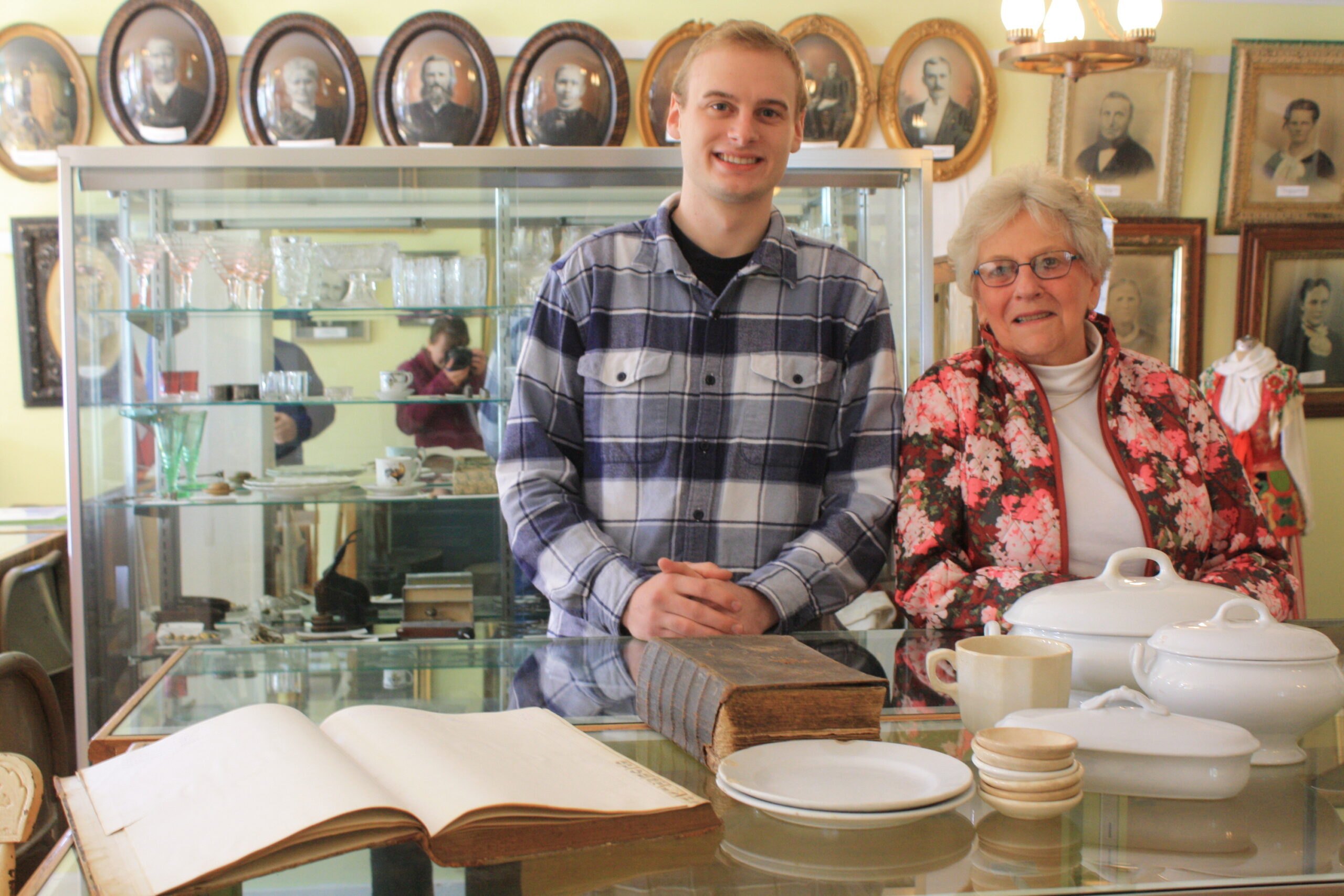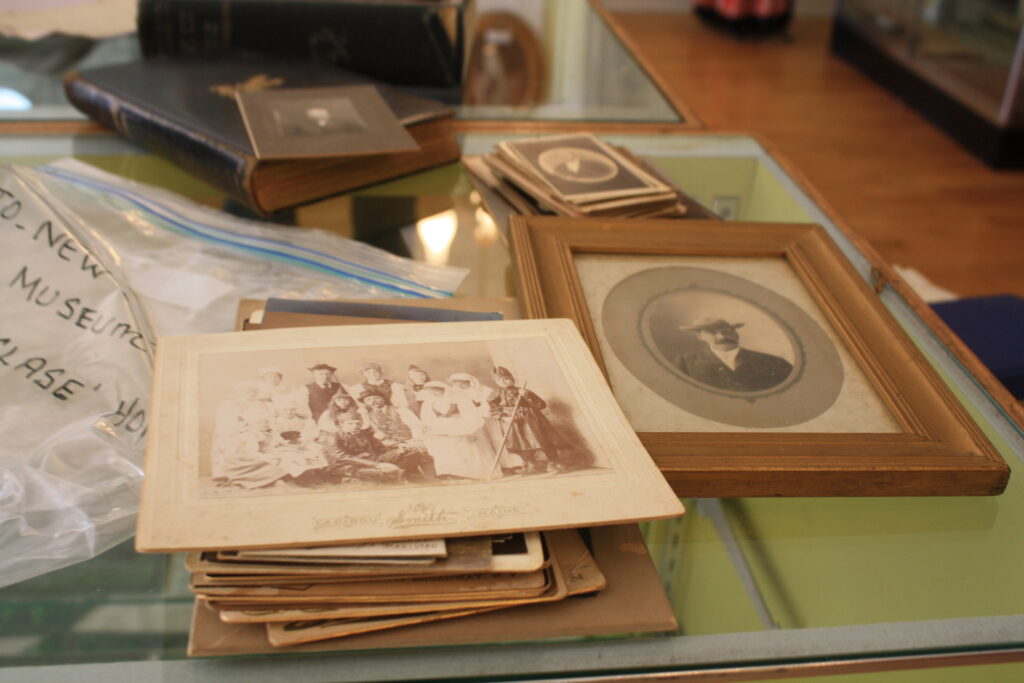
NEW SWEDEN, Maine — An Aroostook native is giving New Sweden residents a rare personal glimpse into how her family helped found the town and the region’s first Swedish colony.
When lifelong New Sweden resident Evald Anderson died in 1991, he left behind one of the town’s oldest homes and a treasure trove of artifacts and family heirlooms dating back to 1870, when his ancestors first arrived from Sweden.
Anderson’s niece, Lynn Espling Silcox, 80, grew up in Caribou but always spent time with relatives in neighboring New Sweden. After her uncle died, Silcox, who lives in Hollis, kept his hundreds of artifacts in boxes for years but is now gifting them to the New Sweden Historical Society.
Silcox’s donation is the largest collection of items from New Sweden’s founding years in at least two decades, said Lukas Lagasse, the historical society’s president.
“The oldest items we usually get are from 1920 to 1940 because it’s a different generation that’s donating now,” Lagasse said. “It’s extremely rare to find things from 150 years ago.”
The story of New Sweden’s founding is one of hardship and perseverance that involved families like Silcox’s giving up their home country for new, unfamiliar territory, Lagasse said.

In 1870, Maine’s commissioner of immigration, William Widgery Thomas Jr., was tasked with bringing immigrants from Sweden to vacant land just north of Caribou. The state wanted to replace young men who had left after the Civil War and promised each family 100 acres and a house. In turn, the families would turn their acreage into farmland.
Silcox’s great-grandparents Nickolaus and Anna Clase arrived on July 23, 1870 with their 4-year-old daughter, Agnes, who later married William Anderson. The family was part of a group of 49 immigrants from Sweden. They found that the state’s promises for land and homes went largely unfulfilled.
“There were supposed to be 12 cabins by then but only five and a half were ready,” Lagasse said. “Any family who had older sons sent them to work.”
Nickolaus Clase was known in New Sweden as “Captain Clase,” in reference to his prior work as a sea captain. He was one of the only residents who spoke fluent English at the time, which helped when he became the town’s first postmaster and owner of the general store.
As more Swedish immigrants arrived by the hundreds in the 1870s, Clase helped many of them find jobs on local farms and as part of railroad and road construction crews. In fact, Lagasse said, Swedish immigrants helped build the first road to Fort Kent for pay of $1 per day.
Clase’s ledger book was one of hundreds of heirlooms that Silcox found among her uncle’s collection. Clase recorded all items that he and others at the general store traded for goods and services, including cedar wood shingles, molasses, sugar, salt, pork and coffee. Though the book’s cover and pages have worn with age, Clase’s cursive handwriting is “impeccable,” Silcox said.

Silcox also found her grandmother Agnes Anderson’s Swedish language Bible, published in 1845, and her and William Anderson’s 1886 marriage certificate. Other heirlooms include 1860s-era bowls and plates her family used, local concert programs, photographs of residents and town anniversary celebrations and articles from Swedish newspapers her family kept all those years.
“My uncle Evald kept everything. I’ve been going through it all for 15 years,” Silcox said. “I didn’t even know about Agnes’ Bible.”
Once Silcox realized the variety and scope of her family’s collection, she knew she wanted to donate everything to the New Sweden Historical Society’s museum on Station Road, just minutes from where her family’s original farmhouse used to stand.
“I knew it would be coming to the right place,” Silcox said. “My heritage means a lot to me, and my family was always very proud of it.”
Silcox’s discoveries also mean a lot to Lagasse, who became the historical society’s youngest president last year. Lagasse’s Swedish ancestors on his mother’s side arrived in New Sweden in 1871.
Lagasse is already thinking of future exhibits in which to showcase Silcox’s artifacts.
“[A family’s artifacts] help tell a much more thorough story of what happened and what life actually was like for these people,” Lagasse said.
Correction: A previous version of this story misstated the acreage each family was promised after immigrating to Aroostook County.







